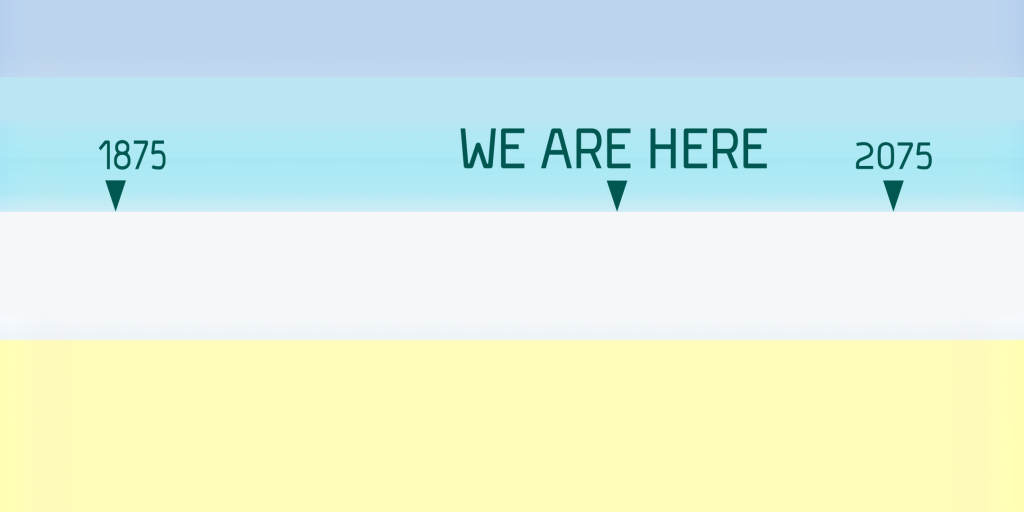



In September 2024, people of all ages—residents, workers, visitors, holidaymakers, and passionate fans of Felixstowe in East Suffolk—came together to time-travel into the future of this coastal town with their friends and neighbours.
This small-scale event to explore community needs and aspirations was a key step in shaping Furtherfield’s future in the town, as we plan our relocation from London to Felistowe. Film-maker Hydar Dwatchi created a film about the event.
It’s important to use our imaginations to create the futures we want
“It just reminds us that we have to bring our creative imaginations to the future that we want. – It’s playful, it’s going to make a lot of people think, it’s going to surprise a lot of people” – Adrian
This experience made it more fun and less worrying to exploring the future
“It brings up serious issues while you are allowed to have a bit of fun with them. But also in a way allowing you to disassociate so your prime self doesn’t have to worry about them, because it’s this future self” – Mark
It’s important to respect ideas and feelings of young people in this town
“It’s great to involve younger people who don’t always get involved in these conversations because we feel a bit disenfranchised, and we feel a little bit pushed out by the older generation sometimes. In Felixstowe, it seems to be an older population…we are trying to get a place for younger people to be collectively together and work with you guys so we can make something we are ALL proud of. It’s just great to have a platform to be able to share ideas and feelings about Felixstowe and have them listened to and respected by everybody.” – Courtney
🚢The port was founded in 1875. Looking back 150 years, we can see the changes it made in this town.
During this event we asked ourselves how, in 50 years, we will we look back on this time with all the changes we know are coming, including new developments and shifts in climate?
🌞Felixstowe is a place that radiates healthful living and wellbeing. The land and sea support livelihoods, leisure and blooming biodiversity. The port, the largest in England, provides crucial national infrastructure and contributes to a healthy local economy. In the summer holidaymakers flock here.
🌬️But things are always changing here and in the wider world. In May, Furtherfield invited local residents to chat about the futures we want. In July, we shared what we discovered with three creative practitioners from the region: Mimi Doncaster and Frazer Merrick, and Kirsty Tallent. Together we created an immersive future fiction that formed the basis of a public event to work on the future together!

⏰We created a timeline of Felixstowe since the port was founded in 1875 and added events of historic or personal significance.
✨Then we chose our time-travelling characters. Starting as a young person, or an elder we decided what our character cares about?
We travelled all the way to 2075, the year the Multispecies Port of Felixstowe opens.
This event was co-devised by Ruth Catlow (Furtherfield), Mimi Doncaster, Ann Light (University of Sussex), Frazer Merrick, and Kirsty Tallent. Thanks to Hamilton MAS for hosting the co-creation workshop and to Cuppa for hosting the community conversation that inspired and informed our work. Thanks to Courtney Hessey for guidance on youth empowerment
In an 18 month project Reimagine This Coastal Town in Felixstowe over Summer 2025 and 2026 we are going to host a programme of events, workshops, and an exhibition, culminating in an eco-social Live Action Role Play (LARP), co-produced by 18+ young adults and eight creative practitioners from the region.
A proven way of generating visionary new worlds, we aim to inspire community-led environmental and social transformation in Felixstowe, enabling residents to collectively reimagine its future in the context of eco-social change, with a particular focus on youth empowerment and reaching marginalised communities in the town.
This project will be realised in partnership with The University of Sussex, Level Two Youth Projects, Hamilton MAS, and the Felixstowe Citizen Science Group and with support from Arts Council England and the Suffolk Cultural Fund.
